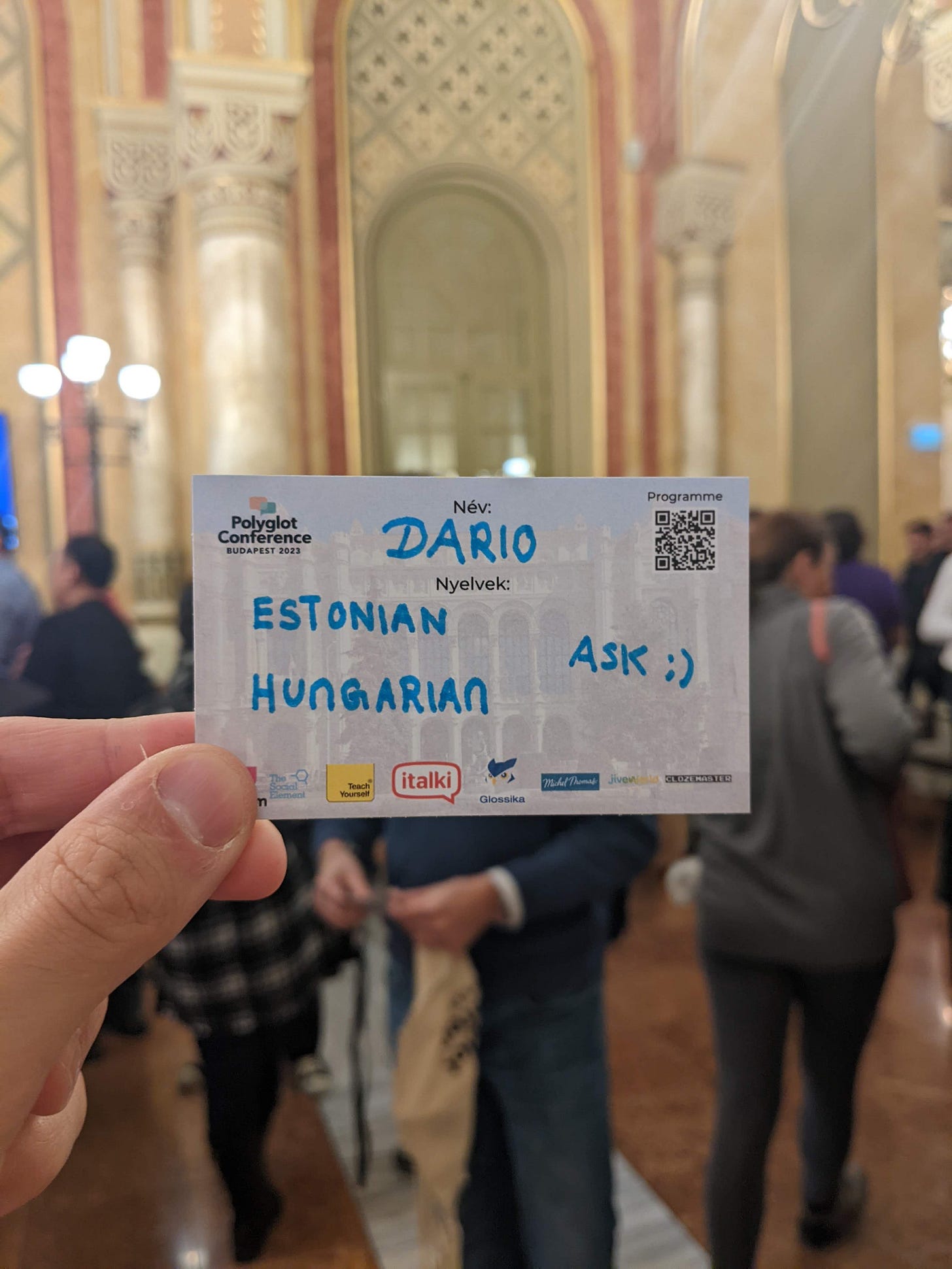Polyglot Conference 2023
Not enough time for updates with so many things going on!
Picture Dump

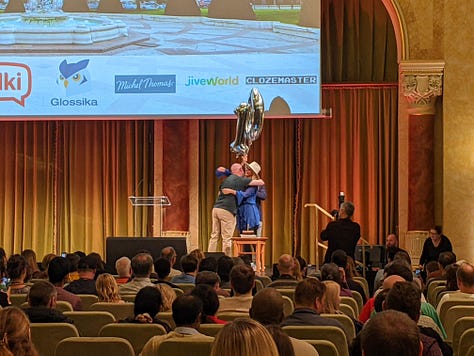
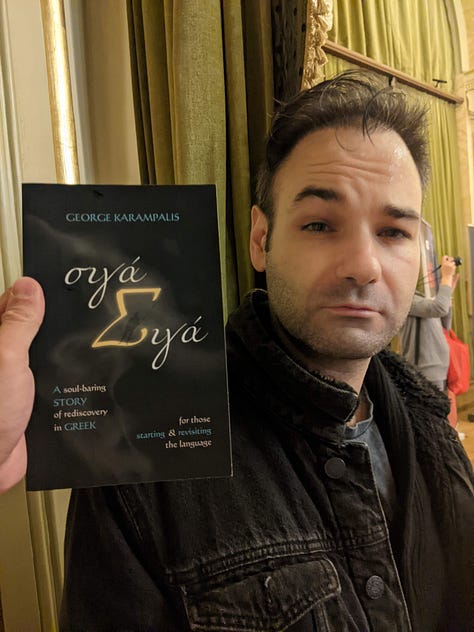
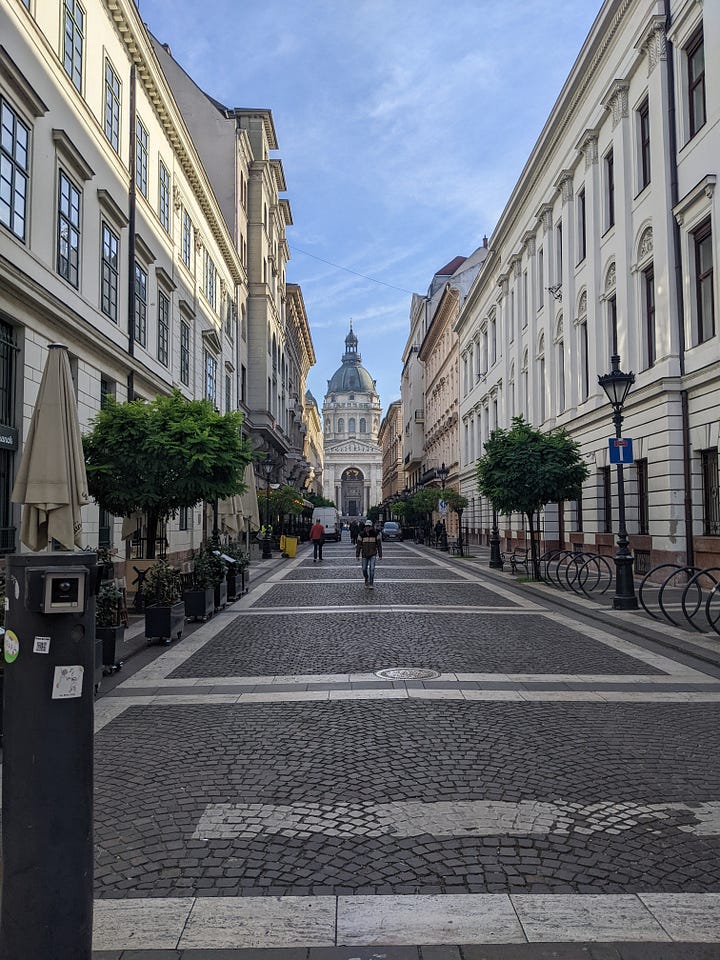
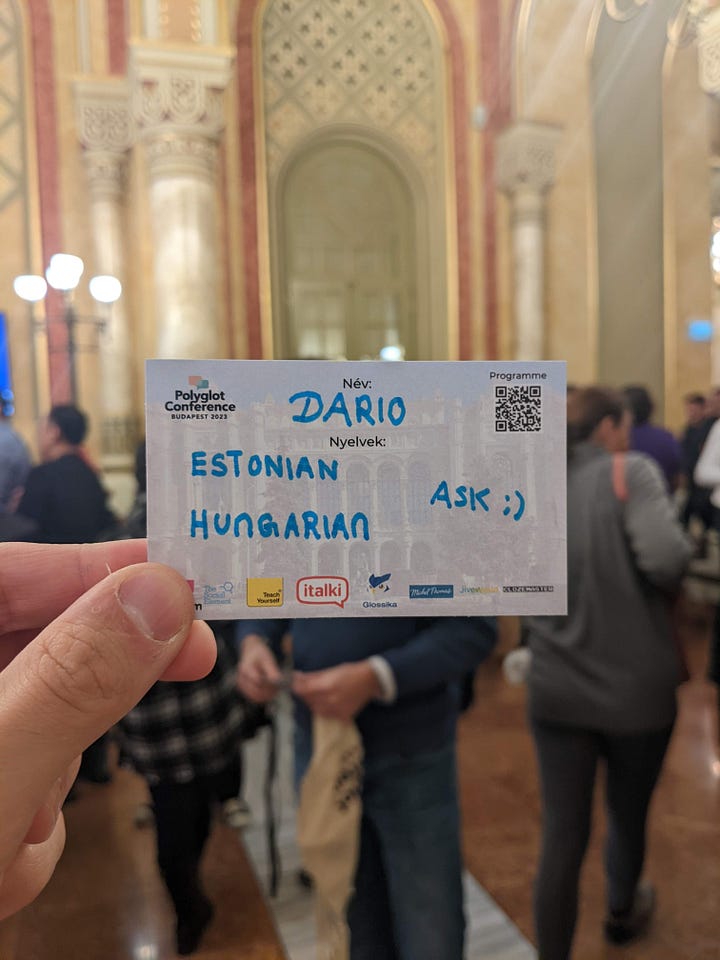
A transformational week
When I booked the trip to Budapest, I had no idea about how it would turn out.
Technically, that qualifies the trip as an adventure.
Well, actually that is not true.
I thought adventures were about venturing into the unknown, but the dictionary disagrees: it’s about taking risks 💡
Estonian is a special language
Before I came to the conference, I thought I’d be the dumbest guy in the room.
I don’t speak 10 languages, so being surrounded by people who do is going to be fun.
Which is good, because that means you are in the right room.
As it turned out, there were actually very few people who spoke anything close to 10 languages.
What surprised me the most was that even at an event like this, with some of the smartest and most experienced people in the world when it comes to language learning, two languages held a special place and actually stood out to people:
That was an extra motivation boost to stick with Hungarian now and get it to a decent level 🚀
Out of the 400 or so conference participants, only 5 (!) spoke Estonian.
The reputation of Estonian, even on an event like this, is that it’s a hard language to learn.
I seriously didn’t expect this and well, maybe having mastered Estonian is the biggest achievement in my life.
It sure feels like that in moments like this!
Surround yourself with the right people
It was nice to be in an environment where people regularly quip that “Spanish doesn’t count as a language” and “Italian, French, Spanish, and Portuguese are the same language”.
It actually opened me up and got me out of my “I need to preserve my Estonian at all costs and other languages are taking away from this” feeling.
In an environment like this, I had no issues with speaking Spanish or Greek or trying to get what people were saying when the conversation switched from Spanish to Italian.
In fact, everybody was exceptionally warm, welcoming, open, smart, adventurous, and a whole lot of other positive adjectives 😊
Some of the people – too many to list them all here – I spent a considerable amount of time with, talking not only about language but also about
running and scaling a language business,
why you might want to drink fertilized chicken eggs,
how to get a book printed on Amazon,
and Swedish real estate.
Confidence…appeared?
How many languages do you speak?
This is the question nobody asked at the event – thank god!
However, outside of Polyglot events, I get this question a lot and I used to answer it with: “Three - German, English, Estonian”
After this week, I feel confident enough to say: 6.
Dropping in and out of conversations in Hungarian, Greek, and Spanish – as well as getting the gist of conversations in Italian – made me realize that maybe, just maybe, I don’t suck completely at these languages and it’s okay to say I speak them.
Again, this is just a discovery that the open environment at the conference produced.
Languages stopped existing in the past-oriented context in which they were acquired:
Greek in Greece where I suffered a lot,
Spanish in school where I didn’t care about it at all,
Hungarian only on paper, at home, out of curiosity
and started existing in a future-oriented context of actually using them:
Greek, as a more rare, “secret” language, allowed me to connect on another level with some people at the conference,
Spanish allowing me to participate in more non-English conversations,
Hungarian brightening peoples’ days in Budapest, because it’s so rare that somebody is actually learning it to a decent level.
Where next
This week was so amazing that I want to do it again!
The Polyglot Gathering in Prague in May is the earliest chance for that ⏳
More urgently, I need to:
go to 🇸🇪 Stockholm and connect a bunch of Hungarian speakers and practice Hungarian,
go to 🇩🇪 Germany as a tourist to visit at two new friends, my mother, and one old friend, talking business and maybe teaching Estonian 🤞
go back to 🇭🇺 Budapest and also visit Szeged for more new friends and more Hungarian practice (and also for taking the Hungarian exam!)


